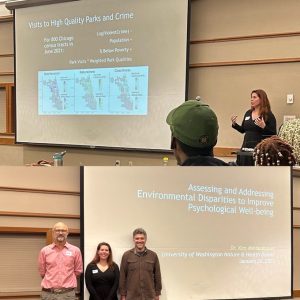By Greg Kats, Howard Frumkin, and Georges C. Benjamin · Amsterdam News · August 15, 2024
Co-Authored by Howard Frumkin, Nature and Health co-founder and Steering Committee member

As the Conference of the Parties (COP) 28 closed with much fanfare and a first-time “transition away” from fossil fuels commitment that’s drawing skeptics, here’s what we do know: The planet we live on and need survival for is getting hotter. The hotter it’s getting, as even the COP28 admits, the less livable it becomes.
However, what the COP28 conveniently omitted—among other essential conversations—are the mental health consequences boiling rapidly from a hotter world. We also know that a hotter planet means we’re dealing with hotter surfaces. Surfaces determine heat, and plenty of cities in the United States were overheating this summer, along with other cities around the globe that are still overheating because they take no winter breaks.
We must explore and respond to the urgent mental health aspects of that. In the U.S., for example, even as 90% of the population can access air conditioning, hotter temperatures translate into more people staying indoors versus enjoying the company of others.
